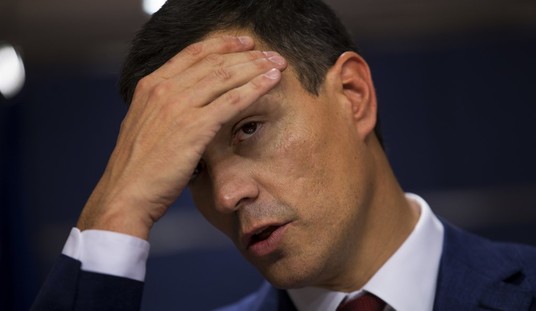My blog on Leon Panetta has raised some interesting questions among my readers. I received a private e-mail from a well known blogger, who accused me of being silent on the issue of torture, and who objected in particular to the phrase I used: “interrogation techniques vigorously opposed by the Left.” My blogger critic argues that these are techniques of torture vigorously opposed by every American President, until that of George W. Bush. Why, he asks, didn’t I make that point?
Well taken, and deserving of an answer. Let me make myself clear: I oppose the use of torture when interrogating our Al Qaeda and Taliban prisoners. I accept the argument that non-coercive techniques work as well and are often much more successful; that once we move down the road of torture we become morally no better than our opponents; that under torture people will do and say anything to make it stop, often even incriminating innocent friends and acquaintances; and finally—I believe some techniques often called simply harsh are in effect torture.
These include first and foremost- waterboarding, and then standing in one position without movement for many hours, sleep deprivation, extreme heat and cold, kept in tiny cells in which one cannot move, mock executions, etc. When I interviewed refugees from Nicaragua during the Sandinista years in the 1980’s on a human rights mission, I took testimony from many people who after arrest, were subject to such treatment. Our report condemned the Sandinistas for torture. We pointed out that these techniques were well defined and accepted definitions of torture by all major human rights organizations.
The Castro regime was always notorious for use of these techniques. When the former political prisoner Armando Valladares published his prison memoir after many years in prison, he recounted in detail the excruciating torture he received during confinement. I commented at the time that the same international Left that had condemned the French for using torture during their Algerian war, and the American Left that always condemned the United States for horrible treatment of its own domestic prisoners, remained silent when evidence appeared of torture regularly used by regimes of the Left, like Cuba and later Nicaragua.
Obviously, one cannot be even handed—opposing torture only when it is used by governments we dislike, and overlooking it or justifying it when used by governments we support. Torture is either good or evil; it cannot be good at one time or bad at another. We can favor a fight against Islamofascism, as I do, and oppose torture in that battle.
The point I was trying to make about the Panetta appointment was that although his hands are not tainted by any acceptance of torture, that alone is hardly a sufficient reason to appoint him. I have learned that our fellow blogger and my friend Michael Ledeen has said Panetta is a good choice, as have Richard Perle and Douglas Feith. Their arguments, that he is a good manager and can possibly clean up a highly ineffective and politicized CIA, hopefully has merit. Counterpoints, however, have been effectively made by J.G. Thayer, who writing on the Commentary magazine’s Contentions, blog, writes the following:
“Some of Panetta’s experiences and skills would certainly serve him well at the CIA. He would be good at making sure the Agency stays within its budget and uses its funding most efficiently. He would keep the Agency from getting too close to breaking laws. And his lengthy experiences in government would help him maintain good relations with other agencies and government bodies.
But those are all peripheral to the primary task of the CIA: to collect information, analyze it, and manage it to best uphold our national security.
We’ve seen, far too often, what happens when the CIA fails. The price is often paid in blood – American blood. “Failures of Intelligence” are often cited as the prime factors in the success of the 9/11 attacks. Such failures also lie at the heart of the the Saddam-WMD mistake. And now Barack Obama – for whatever reason – wants to put in charge of the CIA a man with literally zero experience in intelligence, espionage, and covert operations.”
And our own PJM DC bureau chief Jennifer Rubin, writing on the same Commentary website, makes much the same point:
“So if the criteria for the post are loyalty to the Democratic party and vocal criticism of the Bush administration, Panetta would become a more logical pick. But that hardly seems appropriate in these dangerous times. Now is not the the time for an entirely political appointment to a key national security position. On a day when Bill Richardson’s withdrawal is being chewed over you have to wonder what is going on with the Obama transition team. Really, Leon Panetta at CIA?”
Perhaps Michael Ledeen, Richard Perle and Doug Feith, from their own personal experience and vast acquaintance with people in the defense and intelligence community, may be correct. But from the vantage point of an outsider, for the present at least, I think those who doubt the merit of the Panetta appointment may have the better case.









Join the conversation as a VIP Member